I got scalp cancer at 34 after parting my hair the same way for years, if I didn’t catch it early it could have killed me: here’s what you need to know
A young woman has revealed her horror after discovering a ‘pimple-like’ bump on her part line was actually skin cancer.
And if she hadn’t discovered it early, it could have had deadly consequences.
Speaking to FEMAIL, renowned sports reporter Chloe-Amanda Bailey publicly acknowledged her battle with cancer for the first time.
The 37-year-old was just 34 when she came across the pimple-like spot on her scalp.
“I found it because I’m a picker,” she said.
‘It started bleeding a bit, so I took a picture and showed it to my friends at work the next day. They all thought it was nothing, but my gut said otherwise.”
The young woman went to her doctor, who revealed that it was a basal cell carcinoma and needed to be removed immediately.
Ms Bailey was shocked by how nonchalant some people were about the diagnosis: ‘Oh, it’s just a basic problem,’ they would say.
Journalist Chloe-Amanda Bailey was diagnosed with scalp cancer at the age of 34
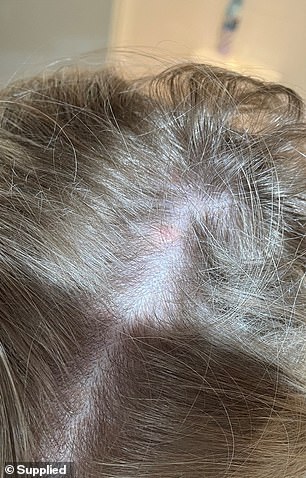
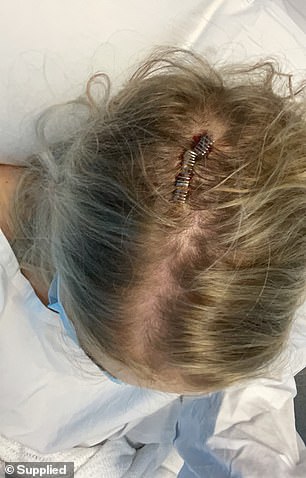
The young woman said the cancer looked like a pimple, but could have been fatal
While she acknowledges that basal cell carcinoma isn’t as deadly as melanoma, she wants people to know that it can be — especially on the scalp — and that even if it’s not a death sentence, it can have major consequences.
“People are losing limbs to these cancers,” she said.
Her own growth was small, but she now has a bald, dimpled spot on her scalp “the size of a 50-cent piece.”
“It was a terrifying time and I felt so much shame and guilt because they were preventable,” she said.
“And I was so ashamed that I had 21 staples in my head. People asked me if it was a headgear even when I tried to hide it,” she said.
The sports journalist spends a lot of time outdoors, especially during the cricket season, where she is constantly watching the game from the sidelines.
“I wear a hat when I’m not working, but I can’t really do that when I’m expected to be camera-ready,” she explained.
She was always good about wearing sunscreen on her face, but didn’t even think about covering her part line.
‘I don’t remember ever having a serious sunburn on my scalp, but the daily exposure was enough. I always parted my hair in the same place and that was enough.
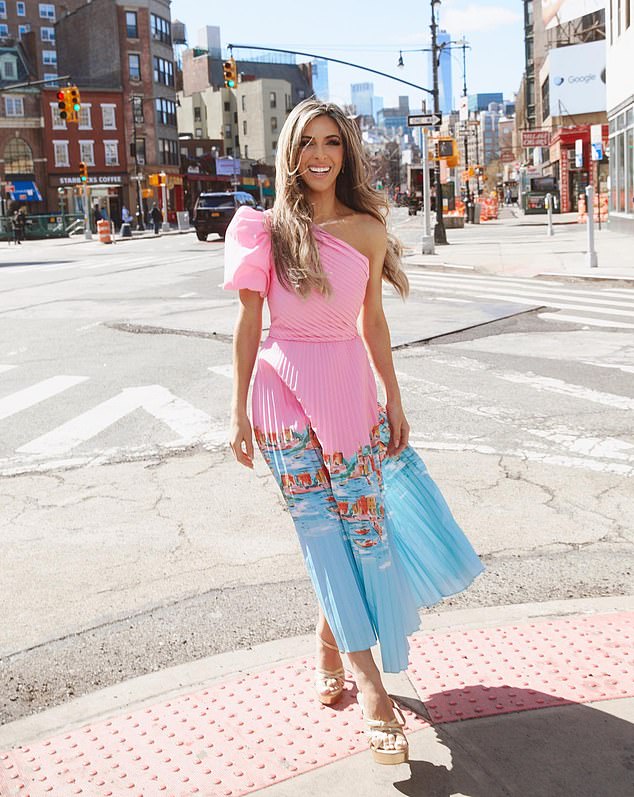
Chloe-Amanda told her friend Samantha Brett about the diagnosis, which prompted Samantha to look into scalp cancers and develop an SPF product to prevent them
While Ms Bailey was going through her ordeal with a cancer diagnosis, her friend and former journalist Samantha Brett launched Naked Sundays – an SPF brand designed to make it easier for people to protect themselves from the sun.
Ms Brett launched Naked Sundays because she saw so many colleagues get skin cancer and realized there was nothing on the market that made it easy to reapply SPF throughout the day when wearing make-up.
The friends had a conversation about the scalp cancer, which could have been fatal or very disfiguring if caught too late.
This, and personal messages mentioning similar cancers, set Ms. Brett on the path to creating a sunscreen that was suitable for the scalp and would not damage the hair or make it look greasy.
“The more I researched it, the more I knew I had to make something to prevent others from getting it,” Ms. Brett said.
It’s taken three years, but the blonde SPF entrepreneur has just released the world’s first water-based SPF for the scalp.
Which can of course be used all over the body.
“It was very difficult to formulate because you usually need alcohol to deliver the actives,” she said.
‘But I didn’t want it to contain alcohol.
“I have bleach blonde hair – I wanted something that wouldn’t damage it, and that could be used on the rest of the face and body,” she added.
According to Ms. Brett, the formula is also less likely to sting the eyes because it does not contain alcohol ingredients.
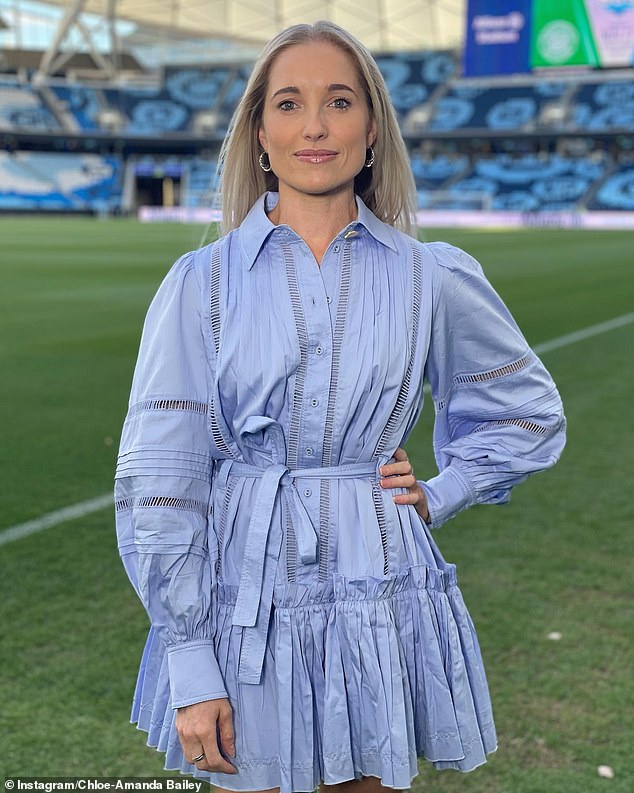
Chloe-Amanda said she divided her hair the same way for decades, leaving the same spot exposed to sun damage day in and day out
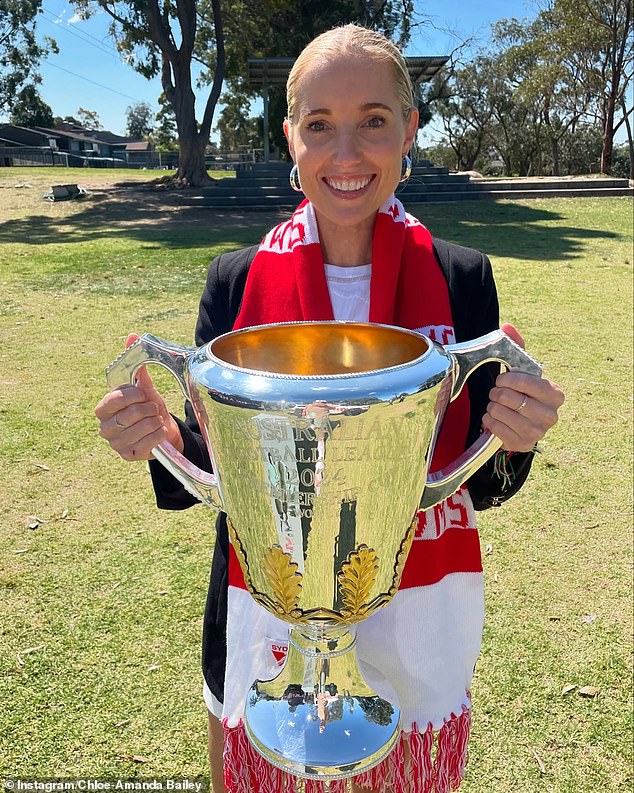
The sports journalist had her skin checked annually, but eventually discovered the growth herself
“It’s perfect for people who catch the bus or walk to work – they may not be able to wear a hat, but they can still protect their scalp,” Ms Brett said.
The spray can be used all over the body – including the feet – which is often skipped due to the greasy-feeling nature of typical SPF products.
“My dad had a freckle on his foot and half of it had to be removed,” Ms Brett said.
Naked Sundays also released a protective hair spray at the same time – to protect hair from sun damage.
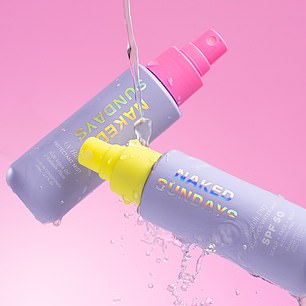
Naked Sundays has just launched an SPF 50 product for the scalp – it’s the world’s first alcohol-free water-based formula
Mrs Bailey will need more frequent skin checks for the rest of her life as she is now at greater risk of developing skin cancer, including melanoma, again.
“Three years later, it’s still scary to get my skin checked,” she said.
She explained that she had been diligent, never tried to “get a tan” and had annual skin checks, but still developed cancer.
“They never looked at my scalp, now they do that every time.”
Ms Bailey wants people to be more aware of scalp cancers, which make up 13 per cent of all skin cancers.
“If I could have turned back time, I would have protected my scalp better,” she said.
She likes Naked Sunday’s latest product because it makes scalp care more accessible to people who might not be able to wear a hat outside the home.
